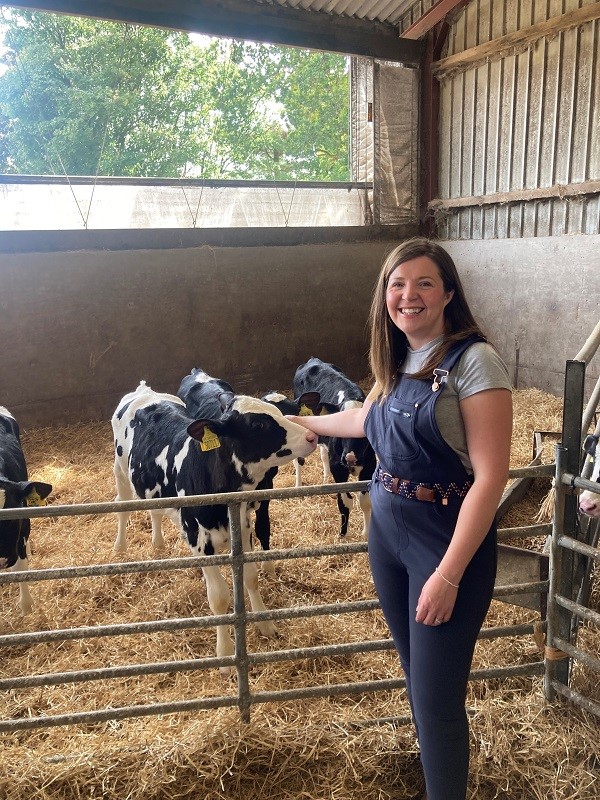Bringing the classroom to the countryside
Tuesday, 9 July 2024
Dobcross Hall in Cumbria opened its gates to eager young minds from William Howard School in Brampton as part of our school farm visits support programme.
These visits in early May brought Year 9 students face-to-face with the intricate workings of a modern dairy farm. Farmer Helen Holliday shares her experience from hosting the day.
Helen wanted to give students an in-depth understanding of the dairy cow life cycle and educate them about cow health and welfare standards.
Additionally, she aimed to demonstrate how Dobcross Hall is advancing in sustainability and technology, showcasing innovations like robotic scrapers and silage pushers.
Activities and engagement
The day began with a tour of the calf shed, where students learned what makes a healthy calf, setting the foundation for understanding animal health from an early stage.
They then moved on to the main cow shed, focusing on the farm's health and welfare practices for adult cows.
A highlight of the visit was observing an artificial insemination and hoof-trimming session, which captured the students' attention and provided insight into essential farm practices.
A healthy soils workshop allowed students to conduct soil health checks and worm counts, emphasising the importance of soil health in farming.
The visit concluded with a stock judging activity, where students used the A, B, X, Y method to evaluate dairy cows and gained insight into the criteria for quality livestock.
Positive feedback and future collaborations
The feedback from the school was exceptionally positive.
The head teacher expressed a keen interest in developing a lasting partnership with Dobcross Hall, integrating farm visits into the school's curriculum.
This collaboration aims to provide continuous educational experiences for students in Years 8 and 9.
The students' enthusiasm was palpable. They particularly enjoyed observing the foot trimming session, witnessing the farm’s robotic technology, and spending time with newborn calves.
When asked if they would like to return, the response was a resounding "yes."
Reflections and insights
Helen found immense joy in the students' enthusiasm and curiosity.
Their interest not only made the visit enjoyable but also instilled a sense of pride among the farm staff.
The variety of questions from the students, ranging from serious business inquiries to whimsical ones, added to the richness of the experience.
The value of support and training
Helen strongly agrees that the CEVAS course and the 1-2-1 consultancy support, provided as part of our school farm visits support programme, were crucial in preparing her to deliver these visits.
The training significantly boosted her knowledge and confidence, making the visits a success.
She advocates for CEVAS training to be mandatory for all farmers hosting school visits, underscoring its value.
 AHDB
AHDB

